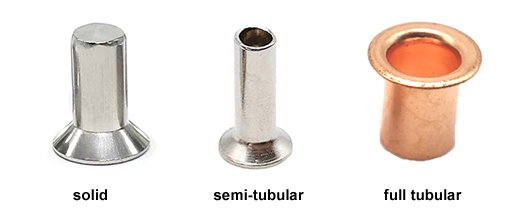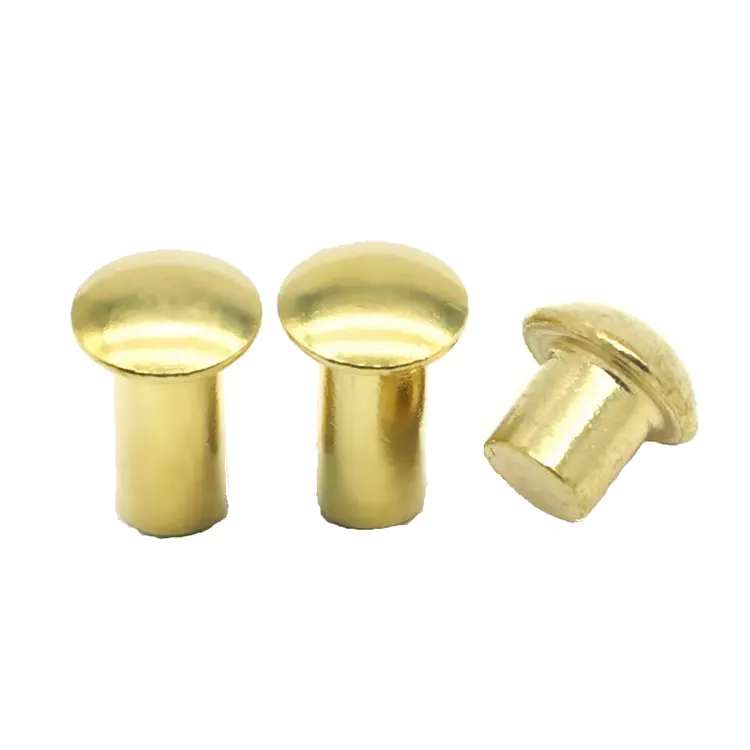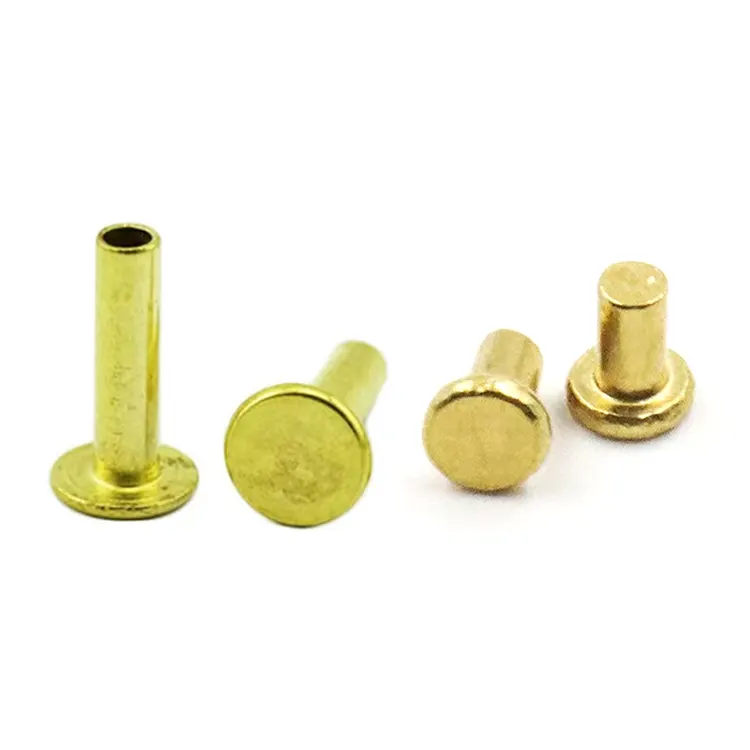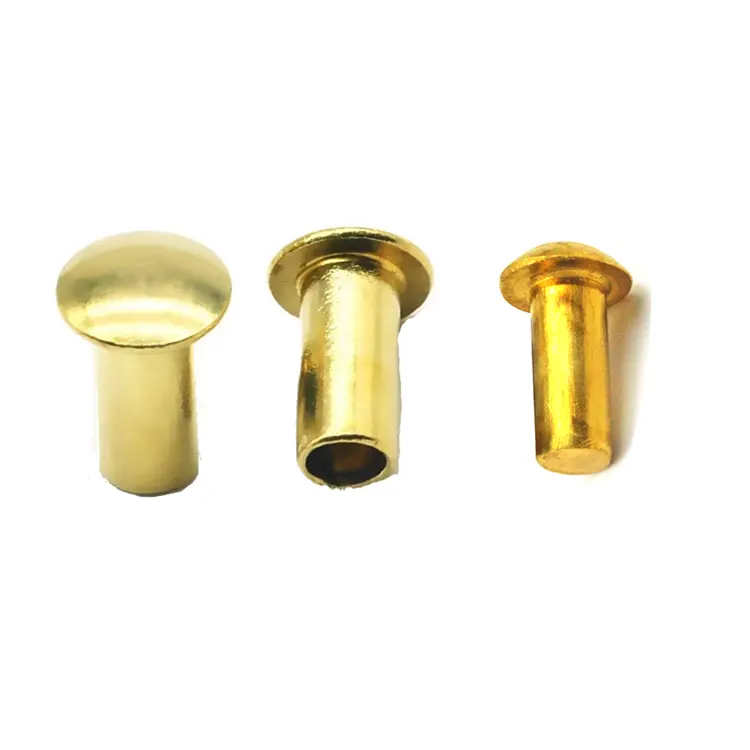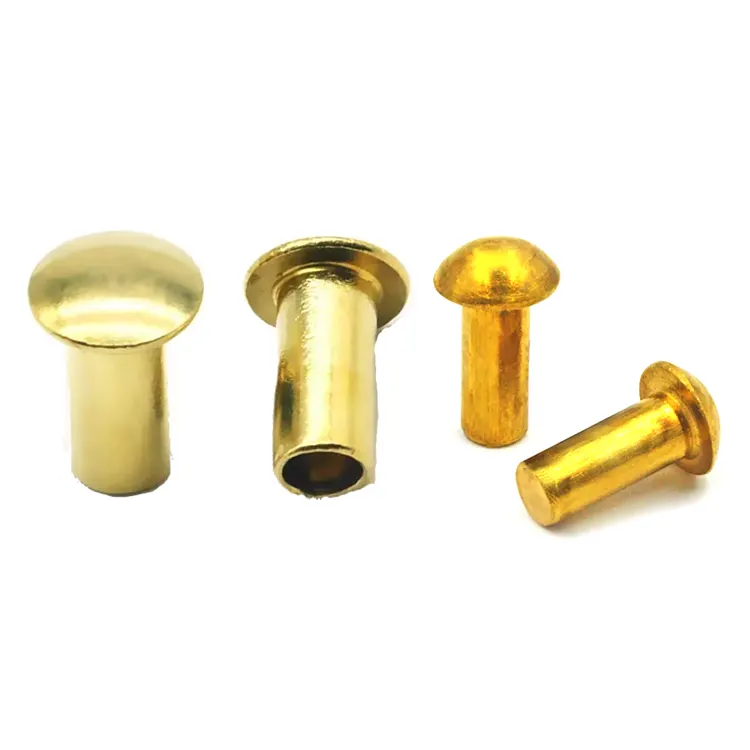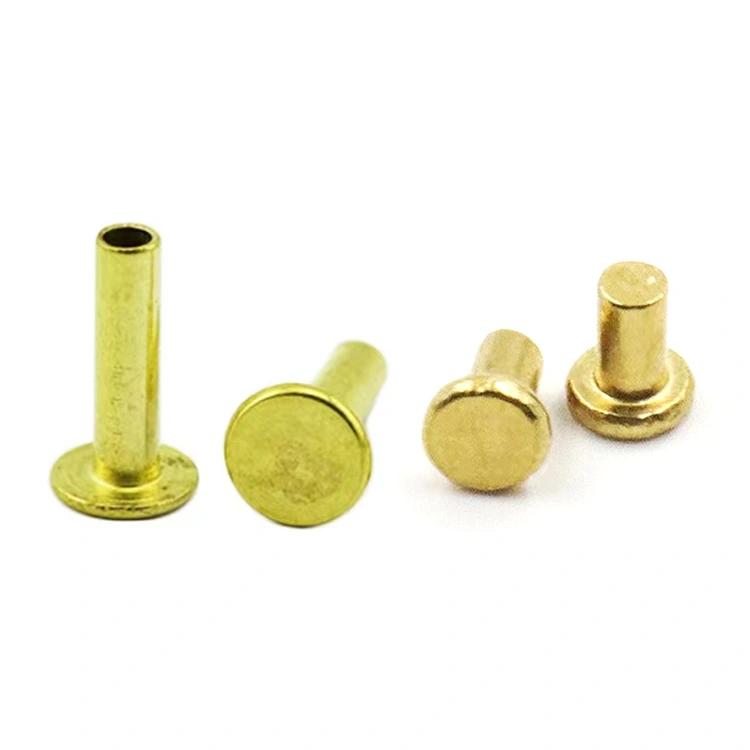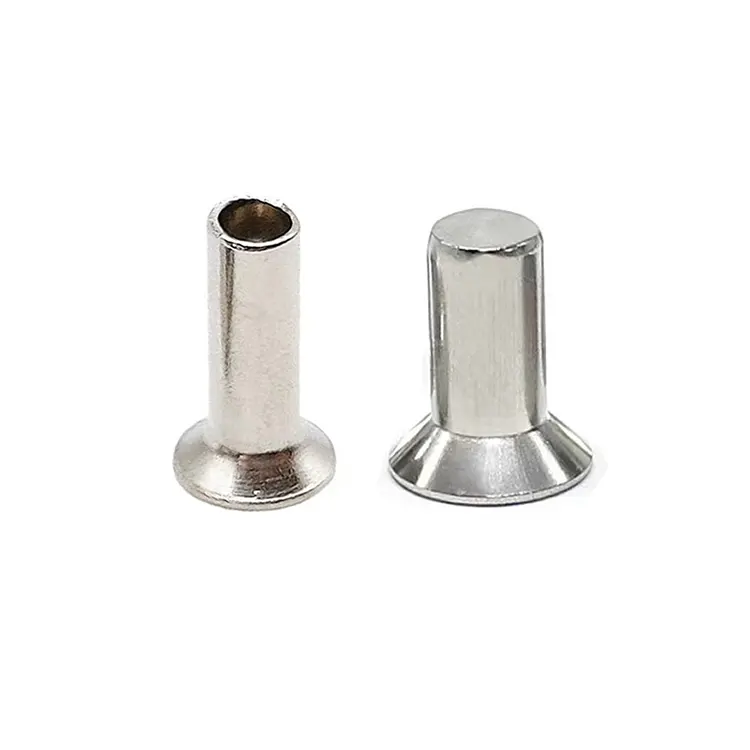リベット
As one of professional manufacturer in China, Notin would like to provide you Rivets. And we will offer you the best after-sale service and timely delivery.
What is a rivet?
A rivet is a permanent mechanical fastener used to join two or more materials. Rivets work by inserting a metal pin into an aligned hole and deforming the end, creating a strong, secure, and durable connection. Unlike temporary fasteners like screws, rivets do not rely on threads, but instead form a permanent connection, making them ideal for applications requiring high strength, durability, and vibration resistance.
Classification of Rivets
Rivets are typically categorized by head shape, degree of hollowness, or material.
Based on head shape, rivets can be classified as flat head rivets, round head rivets, countersunk head rivets, mushroom head rivets, universal head rivets, truss head rivets, etc.

Based on degree of hollowness, rivets can be classified as solid rivets, semi-tubular rivets, or full tubular rivets.
Based on material, rivets can be classified as brass rivets, stainless steel rivets, steel rivets, aluminum rivets, copper rivets, etc.
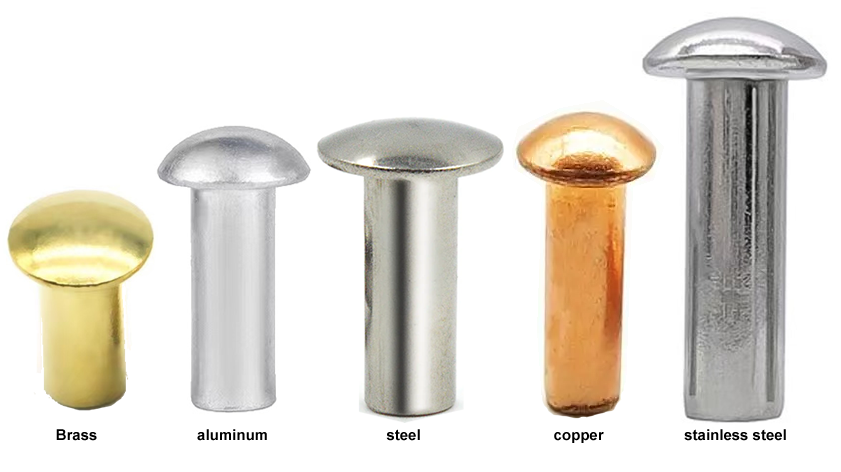
What surface finishes are available for rivets?
Rivet surfaces are typically treated with rust-proofing treatments, primarily electroplating, including zinc plating, nickel plating, chrome plating, tin plating, gold plating, and silver plating. Electroplating is a common rust-proofing method for rivets. It applies a layer of plating to the rivet surface through physical or chemical methods. The plating effectively prevents corrosion and rust, while also providing a certain aesthetic effect.
Another special surface treatment method is head coating. Head coating is performed after the rivet is electroplated. This allows for a variety of colors on the rivet head, achieving an aesthetically pleasing finish.
Aluminum rivets cannot be electroplated, but they can be anodized. Anodizing also allows for a variety of color options, but the unit price is higher than electroplating.
Rust-proofing the rivet surface is crucial, effectively extending the rivet's service life and ensuring a secure connection. Different rust-proofing methods are suitable for different environments and applications, so the choice should be tailored to the specific situation.
- View as
真鍮リベット
Nuote Metals は中国で真鍮リベットを製造しています。真鍮リベットは主に銅と亜鉛の合金で作られており、この合金にはさまざまな利点があります。真鍮は耐食性に優れているため、湿気の多い環境で長期間使用しても錆びず、屋外や湿気の多い場所での使用に適しています。真鍮は強度と硬度も備えているため、良好な靭性を維持し、破損に耐えながら機械的ストレスに耐えることができます。また、真鍮は電気伝導性、熱伝導性に優れているため、電子機器や熱機器への使用に適しています。真鍮の滑らかな表面により、電気メッキや研磨が容易になり、その美しさが向上します。これらの特性により、真鍮リベットは多くの業界で好まれる選択肢となっています。
続きを読むお問い合わせを送信真鍮なべ頭リベット
Nuote Metals は真鍮製なべ頭リベットの製造を専門としています。弊社のリベットは真鍮の含有率が高く、柔らかく成形しやすく、リベット打ちの際に割れにくいH65真鍮を使用しております。真鍮製ナベリベットは頭とシャンクで構成されており、シャンクは長さの約半分が中空になっています。取り付けの際、リベットはあらかじめ開けられた穴に挿入されます。特殊なリベット締め機とパンチを使用して、シャンクの端が拡張して反対側のヘッドを形成し、クランプ接続を作成します。このプロセスは金属の塑性変形に依存しているため、溶接や接着剤の必要がなく、シンプルかつ効率的です。
続きを読むお問い合わせを送信真鍮製マッシュルームヘッドリベット
真鍮製マッシュルームヘッドリベットはヘッドとボディから構成されています。頭は丸くてわずかに平らで、キノコの傘に似ています。ボディは半中空構造で、中央に穴はありますが完全には貫通していません。これらは真鍮半中空マッシュルームヘッドリベットと呼ばれます。リベットの中には真鍮ソリッドマッシュルームヘッドリベットと呼ばれる中実の本体を備えたものもあります。取り付けの際は、専用工具を使用して、あらかじめ開けられた穴に本体を挿入します。圧力が加えられると本体が変形し、本体が膨張して材料を掴み、確実な接続が形成されます。 Nuote Metals は、この真鍮製のキノコ頭リベットの製造を専門としています。
続きを読むお問い合わせを送信What are the advantages of rivets over other fasteners?
1. Ease of Installation
Rivets are fast to install, and even fully automated for high-volume applications, resulting in a simple and efficient operation process.
2. Connection Reliability
The riveting process is standardized, with strict quality control, resulting in highly stable connections. Visual inspection allows for quick verification of connection quality.
3. Vibration and Impact Resistance
Rivets connect through deformation or interference fit, providing strong clamping force and excellent vibration resistance, capable of withstanding vibration and shock.
4. Low Cost
Rivets are easy to install and can be fully automated, saving significant labor costs.
What are the advantages and disadvantages of rivets made of different materials?
Aluminum Rivets
Advantages: Lightweight, reduces overall product weight, low cost, suitable for general civilian applications.
Disadvantages: Low tensile and shear strength, unsuitable for high-strength workpieces, prone to electrochemical corrosion when in contact with metals such as stainless steel.
Stainless Steel Rivets
Advantages: Strong corrosion resistance, high hardness, suitable for high-strength workpieces (such as marine equipment)
Disadvantages: Higher cost, typically more expensive than aluminum rivets of the same specification.
Brass and Copper Rivets
Advantages: Excellent conductivity (such as connecting electronic components), good corrosion resistance.
Disadvantages: Higher cost, more difficult to process.
Steel Rivets
Advantages: High hardness, high connection reliability, and wide applicability.
Disadvantages: Compared to other materials, iron rivets are more prone to rusting.
What are the main applications of rivets?
Rivets have a wide range of uses, from small items like a pair of scissors to large items like airplanes and ships, as well as in high-precision medical applications.
Industrial Manufacturing
Rivets are used in a wide variety of industrial fields, wherever there is a need to connect two or more materials.
Electronics
Rivets secure heat sinks and chips, providing both vibration damping and noise reduction, and are widely used in the cooling systems of electronic products such as computers and mobile phones.
Automotive
Rivets are widely used to connect components of automobile bodies and chassis, such as doors and hoods. Their lightweight and corrosion-resistant properties make them an indispensable joining method in automotive manufacturing.
Aerospace
In aircraft manufacturing, rivets are used to connect different fuselage components, such as wings and tailplanes. Millions of rivets create high-strength, corrosion-resistant joints. Aluminum and titanium alloy rivets are often used to connect components of corresponding materials, ensuring stability in extreme environments.
Rivets are used everywhere. The above examples only represent a small number of their applications. We see rivets everywhere in our daily lives, such as on scissors, folding beds, and strollers etc. Rivets can be customized to different sizes and materials depending on the application.
Nuote Metals has specialized in the rivet industry for over a decade. Our factory is located in Dongguan, a city known as the "World Factory," a city with a developed industry and convenient transportation. This allows us to respond quickly when acquiring raw materials and supporting surface treatments, meeting our customers' needs for quick access to samples and bulk orders. We produce 10 million rivets daily and have molds of various specifications, allowing us to produce rivets as small as 0.8mm and as large as 10mm. We welcome your inquiries and visits.






